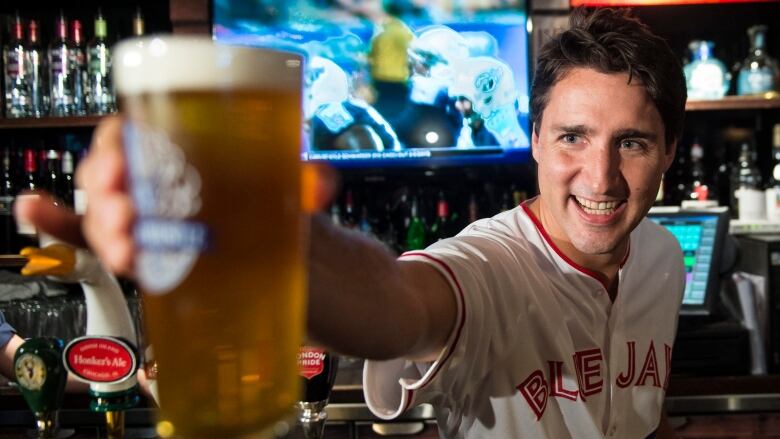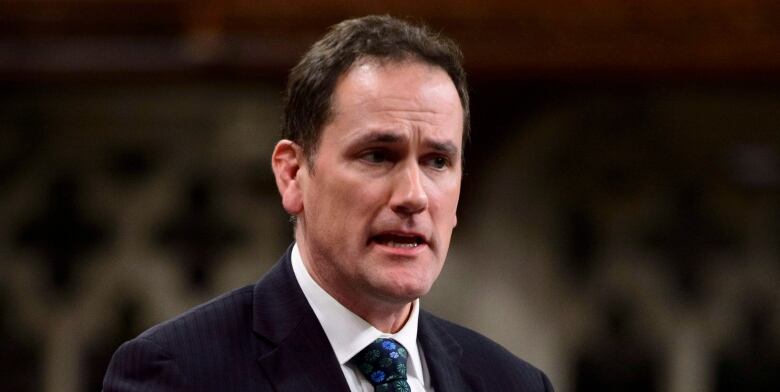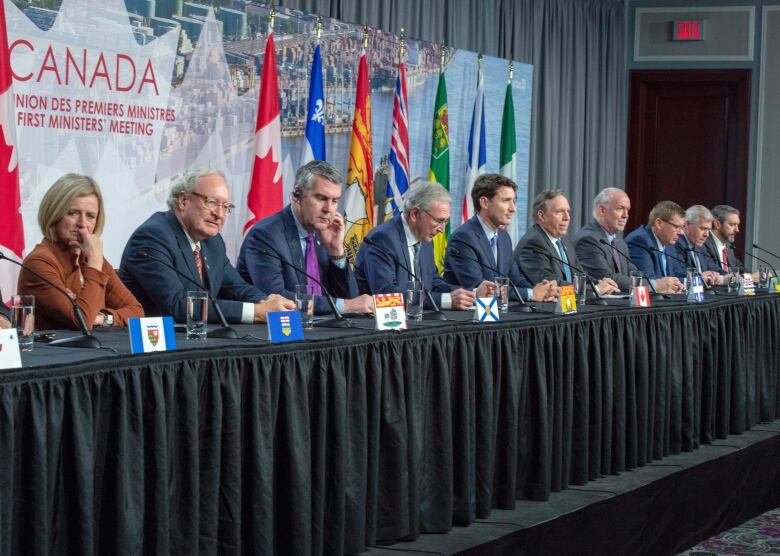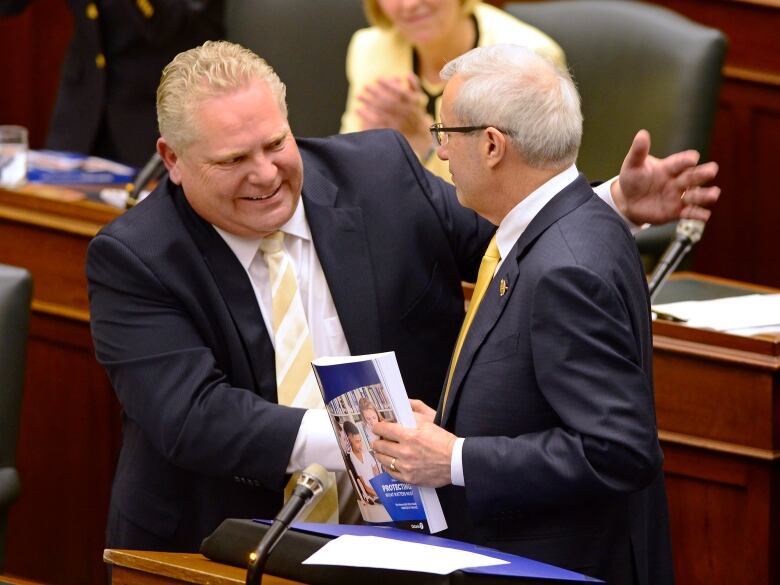The federal budget bill can't actually 'free the beer'
Provinces meet in May to consider - again - how to liberalize interprovincial trade in alcohol

Prime Minister Justin Trudeau said this year's budget bill does what the Harper government could never do over ten years in office it "frees the beer."
There's just one problem with that claim: only the provincescan free the beer (or wine, or spirits). And most of them haven't including Premier Doug Ford's Ontario, despitehis government's first budget beingotherwise loaded with booze liberalization measures.
For the federal Liberals,lifting the remaining federal restrictions on the interprovincial liquor trade is "low-hanging fruit," saidDan Paszkowski, CEO of the Canadian Vintners Association (CVA).
"Unfortunately, in the parliamentary system that we have ... we still have to struggle province by province."
The CVAcitespolls that suggest up to90 per cent of Canadians want to see interprovincial trade in alcohol freed up. The federal law that restricts cross-border alcohol trade dates back to 1928.
The move "allows Canada to enter into the 21st century," Paszkowski said. "We're the only wine-producing region in the world that isn't allowed to move wine or travel with wine across state or provincial borders."
The CVAsays it's "thrilled" the changes are likely to pass quickly as part of this spring's budget bill but don'tplace an order withyour favourite out-of-province winery just yet.
"These changes that the government is making are wholly symbolic," British ColumbiaConservative MP Dan Albastold reporters after C-97, the implementation billfor the 2019 federal budget, was introduced. "They will not allow for a consumer in Ontario to be able to order direct from British Columbia or Nova Scotia."
Albas, who represents a riding in B.C.'s wine country, championed aprivate member's billto "free the grapes" in 2012. But its passage into law, and its eventual extension to cover beer and spirits,didn't convinceevery province to co-operate.
In fact, new barriers emerged in response.
"The federal government, I think, is just trying to pay lip service to the idea of a more united economy," Albas said.
Maybe so. But withthe feds out of the way,the politicians that freedom-loving drinkers stillneed to convince are all provincial.
Direct shipments illegal
Alcohol has been part ofinterprovincial trade negotiationsfor years, with few results.
The last time Canada's first ministers met, in December, their final communiqupledged to "consult industry and consumers to develop ways to facilitate the sale of alcoholic beverages, taking into consideration social responsibility obligations."
Fears about social responsibility stood in the way of an attempted deal last July that would have allowed provinces and territories to act in unison andraise the personal exemption for alcohol purchased in one province and transportedacrossa provincial border to another.

Some provinces followed through and raised their personal exemption limits. But not all of them did.
And lifting restrictions on personal transport across provincial borders doesn'tallow Albas'shypothetical wine lover in Ontario to order a case directly from an Okanagan vineyard.
Raising the personal exemption may be "of some value" to people who live near borders, Paszkowskisaid."But if you live in Kitchener (Ont.) how often do you get to a winery in the Okanagan? And are you really going to drive 500 km to Quebec, or 1,000 km to Manitoba, to buy a wine that's not available in the LCBO?"
A 2016 deal between Ontario, B.C. and Quebec created an online portal for cross-borderpurchases, butprovincial liquor monopolies still mediate these sales.
Feds tipped their hand
Only three provinces British Columbia, Manitoba and Nova Scotia responded to Albas'slawby amendingprovincial regulations to allow direct-to-consumer sales.
Manitoba will allow any wine shipment, while the other two provinces will allow direct delivery of a completely Canadian vintage from a licensed winery.
More than 80 per cent of Canadians live in provinces where restrictions remain.
"I've kind of given up on the thought of all provinces acting at the same time," Paszkowski said. "I think one-by-one is the best approach, but if we get two of the big ones, like Ontario and Alberta, I think the others will come on relatively quickly."

The provinces and territories have a working group on alcoholthat's set to meet in Nova Scotia next month.
Federal officialspreviewed this part ofthebudget for theworking group back in January. So provincesknew this changewas coming.
Your move, premiers
The office of the incoming chair of the Council of the Federation, Saskatchewan Premier Scott Moe, told CBC News that the outgoing chair, New Brunswick Premier Blaine Higgs, would be the appropriate contact to fieldquestions.
Higgsconfirmed an interview on this topic with CBC News,then cancelled. Several days later, Robert Duguay, a provincial governmentspokesperson, said New Brunswickwould "take the necessary time to review this new federal bill and its implications for the province.
"The legislation has not been passed yet,and we need toexamine it in further detail," he said.
So what about those relatively new,freedom-minded governments in Alberta and Ontario?
Jason Kenney'srecently-announced principal secretary, Howard Anglin, championed lifting interprovincial trade restrictions when he helmed theCanadian Constitution Foundation.
The incoming premier himself has saidit'sunreasonable thathe can't ship a case of beer from Saskatchewan to Alberta, or vice-versa.
Premier Ford's first Ontario budget promised to "treat adults like adults," and made it easier to drink in severalways.
But it still didn't letthose adults order their own wine without the LCBOplayingmiddleman.

"Premier Ford remains committed to working with his provincial counterparts to remove barriers to trade in alcohol across Canada," said his spokesperson, Simon Jefferies.
Ontario is promisingto work with Quebec on "reciprocal" measures.
"The Ontario Government continues to look for ways to increase consumer choice, and is currently undergoing a complete overhaul of the province's outdated alcohol distribution system. We'll have more to say about this moving forward."












_(720p).jpg)


 OFFICIAL HD MUSIC VIDEO.jpg)
.jpg)



























































































